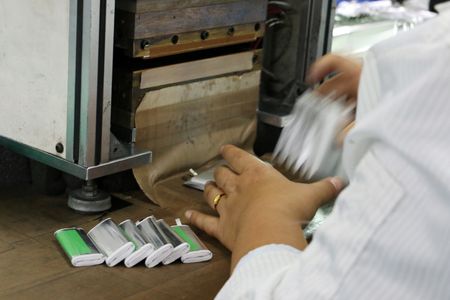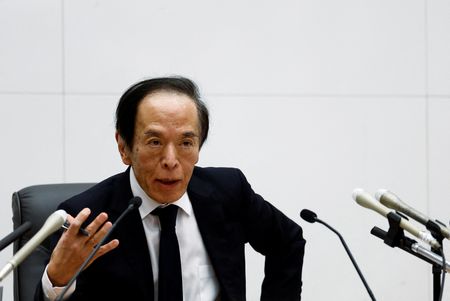TOKYO (Reuters) -Japan’s Panasonic Holdings raised the full-year earnings forecast for its energy unit, which supplies batteries to Tesla, on stronger sales of energy storage systems and improved profitability at its U.S. battery plant.
The company will also seek to improve group profitability by more than 300 billion yen ($1.93 billion) and achieve a return on equity of over 10% by the fiscal year ending March 2029, it said in a separate plan announced on Tuesday.
Panasonic raised the battery segment’s full-year outlook by 14% to 124 billion yen ($798.35 million) after it reported a 39% increase in year-on-year operating profit at the unit in the third quarter.
The unit’s stronger performance was fuelled by growth in sales of energy storage systems and lower material prices, along with improved profitability in its in-vehicle business in North America.
Those factors helped offset an overall decrease in automotive battery sales which led to reduced production in Japan and ramped-up costs for two facilities, a new U.S. battery plant and a renovated factory in Japan’s Wakayama prefecture.
Panasonic said in its separate announcement that it would focus on management reform in the fiscal year starting April and aim to improve its group profitability by more than 150 billion yen by fiscal 2026 and another 150 billion yen by fiscal 2028.
Panasonic Energy operates a plant in the U.S. state of Nevada that provides batteries to Tesla. It plans to open a second U.S. plant in Kansas this year as it enlarges its footprint in North America.
Third-quarter operating income for the key segment rose to 42 billion yen ($270.46 million), Panasonic said in financial materials. The company also retained its full-year profit forecast for its group’s entire business at 380 billion yen.
Panasonic competes with other Asian battery makers such as China’s CATL and South Korea’s LG Energy Solution, which said last month it planned to slash capital expenditure by up to 30% this year on slowing EV demand growth.
($1 = 155.1800 yen)
(Reporting by Daniel Leussink; Editing by Christian Schmollinger, Saad Sayeed and Kate Mayberry)










